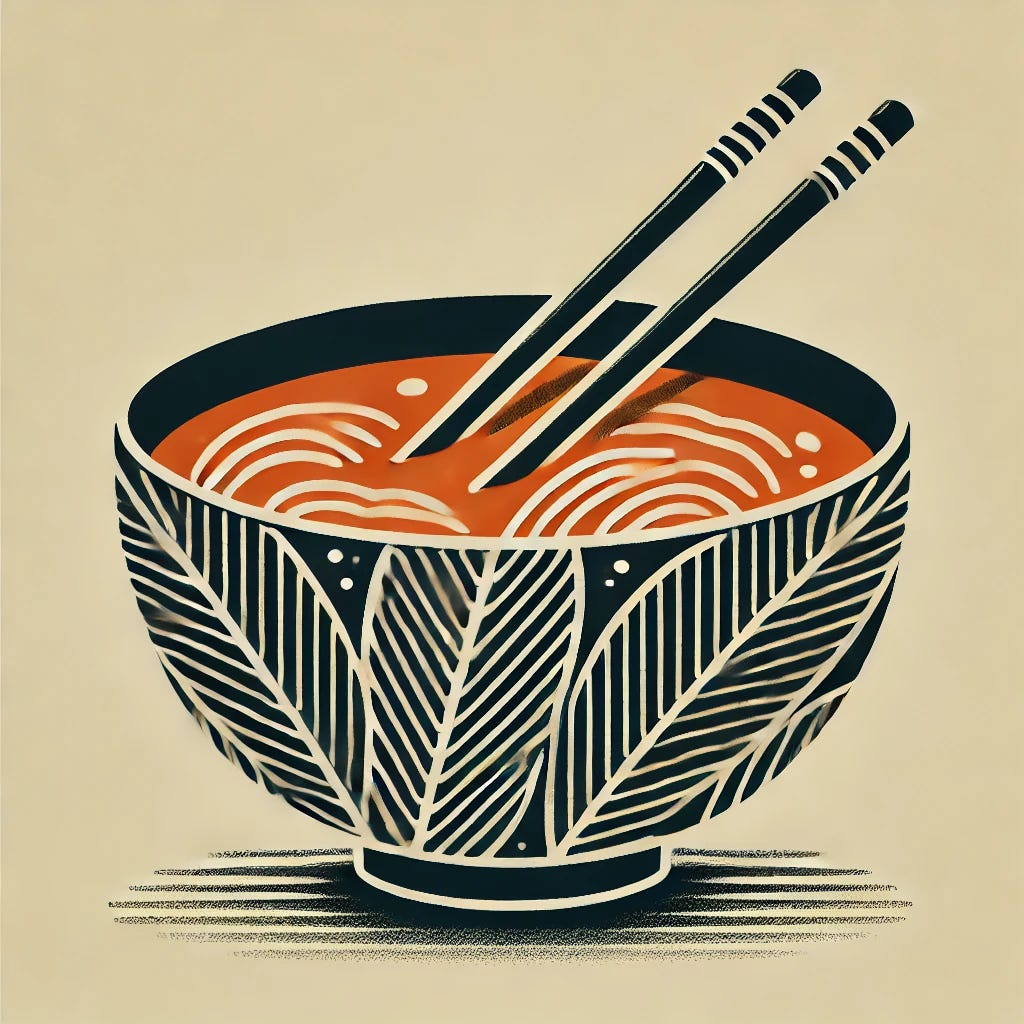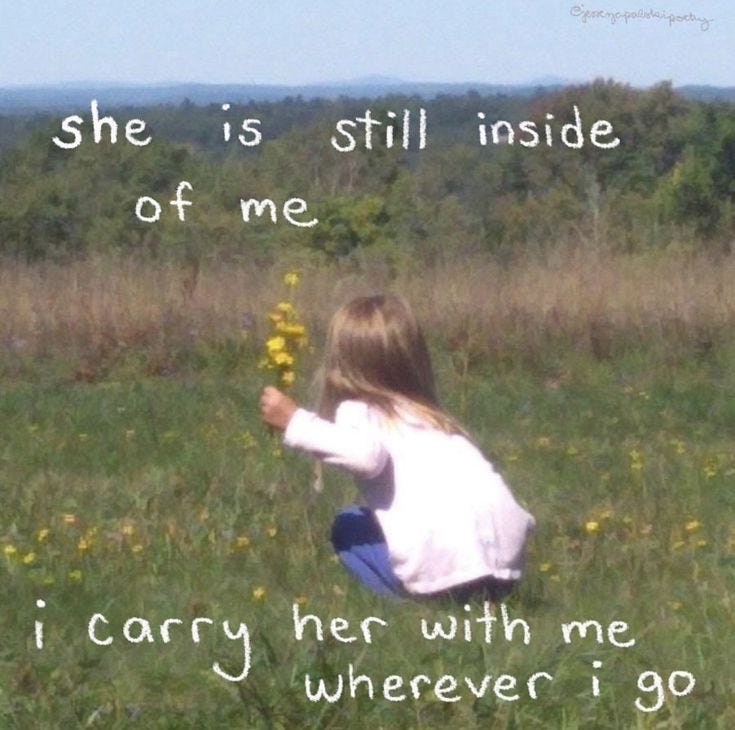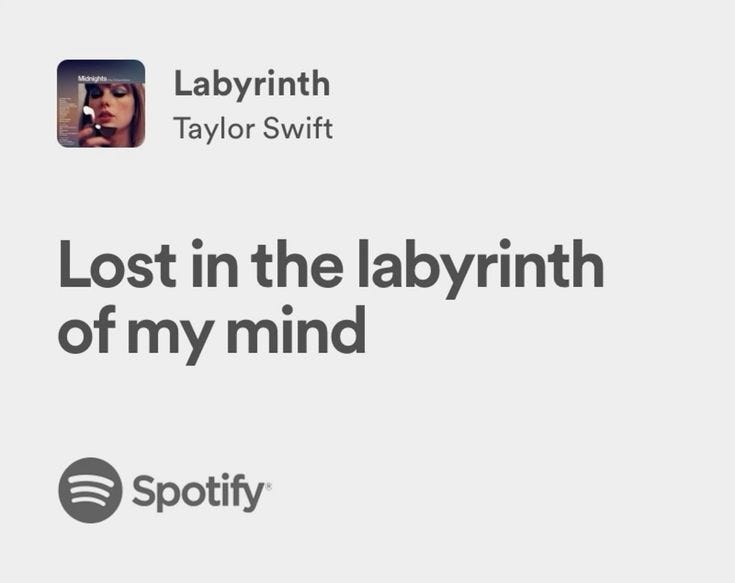wasted potential: chopsticks in my soup bowl
Weight of Choices, Misaligned Tools, and the Beauty of Imperfection-
As I sit down to write, the winter rain drums insistently against my windowpane, the kind of rhythm that seems to echo thoughts too fragile for daylight. It’s as though the world itself conspires to hush its own chaos, inviting quiet reflection instead. The cold seeps through the walls, curling into my space like an uninvited guest. A small shot of vodka warms my chest—a fleeting rebellion against the chill—but I’m still tethered to this moment, seated at my desk. The white glare of the screen reflects off my face, the only illumination in a room cloaked in shadows. Outside, the rain continues its soft percussion, punctuating the silence. Nights like these, where the solitude feels more vivid than the world itself, seem to pry open a doorway to reflection. What I offer here is not an essay but a meditation—a letter sent across the void, wandering through the labyrinth of memory and meaning. Pour yourself a cup of coffee, or perhaps something stronger if the night calls for it. Find your favorite corner—a couch, a desk, or a window seat where the world feels just far enough away—and let’s begin this journey together. This isn’t a quest for answers but an exploration, an unhurried wander through the intricate, imperfect spaces where meaning often hides. Let’s settle in and see where the path takes us.
(i made this so please bear with me)
There’s an image I can’t seem to escape: a bowl of soup, its steam curling upward in ephemeral tendrils, the aroma rich and inviting. It should be a tableau of comfort, but my eyes are drawn to the chopsticks lying awkwardly in the broth. They don’t belong there—not in this context. Chopsticks are tools of precision, designed for delicacy and control, but here they are useless. You cannot eat soup with chopsticks. And therein lies the heart of the metaphor: potential, misaligned with purpose, is nothing but frustration. These chopsticks might excel elsewhere, but in the soup, they flounder. I see myself reflected in them far too often.
Potential, for all its radiance, is not infinite. We like to imagine it as an ever-present force, waiting to be tapped, but it is contingent—on timing, on circumstance, on courage. Without these, it stagnates, becoming less a source of hope and more a haunting echo of what might have been. Kafka captures this poignancy in his Diaries, writing, “I have spent all my life resisting the desire to end it.” It is not despair I hear in his words, but the unbearable weight of awareness: the recognition of infinite possibilities juxtaposed against finite choices. Resisting the erosion of one’s potential is an act of defiance, a refusal to succumb to the gradual diminishment of self.
There’s a photograph of me as a toddler, sitting on a couch, my hair messy and long, oversized sunglasses perched precariously on my small face. I’m grinning—no, laughing—a full-bodied laugh that toddlers seem to have mastered. There’s a freedom in that image, a lack of pretense. My joy is uncalculated, my pose unpracticed. I’m not laughing for the camera; I’m simply existing in my delight, as though the absurdity of wearing sunglasses indoors is reason enough for happiness. I think about that child often, not with nostalgia but with curiosity. What did she know about joy that I’ve forgotten? She had no concept of potential, wasted or otherwise. She lived entirely in the present, her happiness unburdened by expectation.
If I could reach across time, I wonder what I would say to her. Would she understand the compromises I’ve made, the opportunities I’ve let slip away? I think of Borges’ labyrinth—a place where every corridor leads to countless others, infinite and unknowable. He writes, “There is no need to build a labyrinth when the entire universe is one.” For years, I have felt trapped in my own personal labyrinth, each pathway shimmering with the allure of a different life. There’s the scholar buried in books, her thoughts solitary and profound; the artist, her hands stained with paint, chasing the flicker of inspiration; the traveler, the wind carrying her to places unnamed and unexplored. But the labyrinth is cruel in its logic. Every choice excludes countless others. To step down one path is to leave others unexplored.
And so, I linger at the entrance, paralyzed by the weight of possibility. My hesitation feels like a kind of stasis, a refusal to choose borne out of fear that I will choose poorly. Over time, the corridors begin to dissolve into shadows, their vibrancy fading as the opportunity to act slips through my fingers. The labyrinth’s paradox becomes clear: the more I fear losing, the more I lose.
What is a labyrinth if not a reflection of our own minds? Its twisting corridors, its infinite choices—they are not external structures but mirrors of our inner selves, symbols of the potential we carry but seldom realize. The labyrinth cannot be solved; it can only be traversed. Its meaning lies not in reaching a destination but in the act of moving forward, step by uncertain step. The tragedy is not in choosing poorly but in refusing to choose at all. Time does not wait, and to remain still is to let the corridors collapse into nothingness. To move, even blindly, is to honor the potential that still flickers within us.
Potential demands action, and action requires courage. Yet courage, for all its supposed boldness, is fragile—an unruly flame that flares briefly in the heart, igniting the will to leap, only to flicker and fade as doubt creeps in. Courage is not the absence of fear but a trembling resolve to press forward despite it. Standing on the edge of possibility often feels like staring into an endless sea, where every wave is both a promise and a threat. The water whispers of transformation and adventure but also of the deep, unrelenting pull that could sweep you under.
The paradox is maddening: potential exists only if it is acted upon, yet the very act of reaching for it demands a vulnerability that feels unbearable. It’s not just the risk of failure—it’s the risk of redefining oneself. What if the leap doesn’t lead to soaring but to stumbling? What if the sea swallows you whole? And yet, what is more dangerous: the leap or the lingering? The sea is vast, yes, but standing on the shore, unwilling to wade in, means denying its wonders entirely. The longer one waits, the more the waves seem to recede, leaving nothing but a barren, cracked shore.
Rilke once wrote, “And the point is, to live everything. Live the questions now. Perhaps you will then gradually, without noticing it, live along some distant day into the answer.” His words carry a profound invitation—to embrace life not as a series of solutions but as a dance with its uncertainties. Creation—of a life, of meaning, of self—is not linear or tidy. It’s chaotic, full of false starts and detours. It’s stepping forward, not knowing where the ground will appear, trusting that it will or learning to fly if it doesn’t.
But how often do we hesitate? How often do we stand at the edge, convincing ourselves that we need more preparation, more certainty, more time? Readiness is a lie we tell ourselves to justify inaction. The truth is, the soup cools while we wait. The flavors that were once vibrant fade. The chopsticks, once delicate tools of precision, sink to the bottom, their usefulness obscured by our hesitation. We are paralyzed by the fear of imperfection, by the thought that our attempt might not measure up to the imagined ideal. And yet, imperfection is the very heart of creation. It’s the jagged edge where beauty lives, the crack where the light gets in.
But what if imperfection isn’t just inevitable—it’s necessary? What if the act of trying, of fumbling forward, holds more meaning than the polished result we envision? To live is to risk. To risk is to engage with the messiness of existence, to allow yourself to be reshaped by the process. There is no perfect moment, no pristine execution. There is only the raw, human struggle to reach for something, to lift the chopsticks from the soup even when they seem ill-suited for the task, and to try, again and again. It’s not about succeeding; it’s about showing up. It’s about saying, I am here. I am trying. That is its own quiet triumph.
Virginia Woolf, in To the Lighthouse, reflects, “For nothing was simply one thing.” Her words capture the complexity of existence—the way moments overlap, resist categorization, and defy simple explanation. Life isn’t a clean narrative; it’s a kaleidoscope of fragments, each piece refracting light in its own way. Late at night, I find myself surrounded by these fragments—books left unread, notebooks brimming with half-finished ideas, dreams deferred for a time that never quite seems to arrive. The weight of what remains undone presses heavily, a reminder of the vast chasm between what is and what could be.
But perhaps meaning doesn’t lie in bridging that chasm. Perhaps it’s in the quiet acts of presence—the way laughter rings out unexpectedly, the warmth of a sunbeam on skin, the soft cadence of rain on glass. Maybe the chopsticks, awkwardly floating in the soup, aren’t a failure but an invitation. They remind me that beauty isn’t found in perfection but in the courage to engage with imperfection, to find grace in the messiness of it all.
Before I close, I want to leave you with something more—a melody, a moment, a thread to carry these thoughts into your own quiet spaces. Music often holds what words cannot, offering a resonance that lingers in the in-between. Find a song that feels like a companion to this reflection, something that speaks to the questions we’ve walked through together. Let it fill the silences and remind you that even the unresolved has its place-
And so, I leave this reflection untidy, the questions unanswered, the chopsticks still floating in the soup. Life isn’t about finding the perfect conclusion. It’s about dwelling in the questions, about learning to carry them gently as we move forward. It’s about trusting that even in the mess, there is meaning. Somehow, in ways we cannot yet understand, the questions will lead us where we need to be.
(i wanna be thirteen again.)









Excellent work 🔥🔥